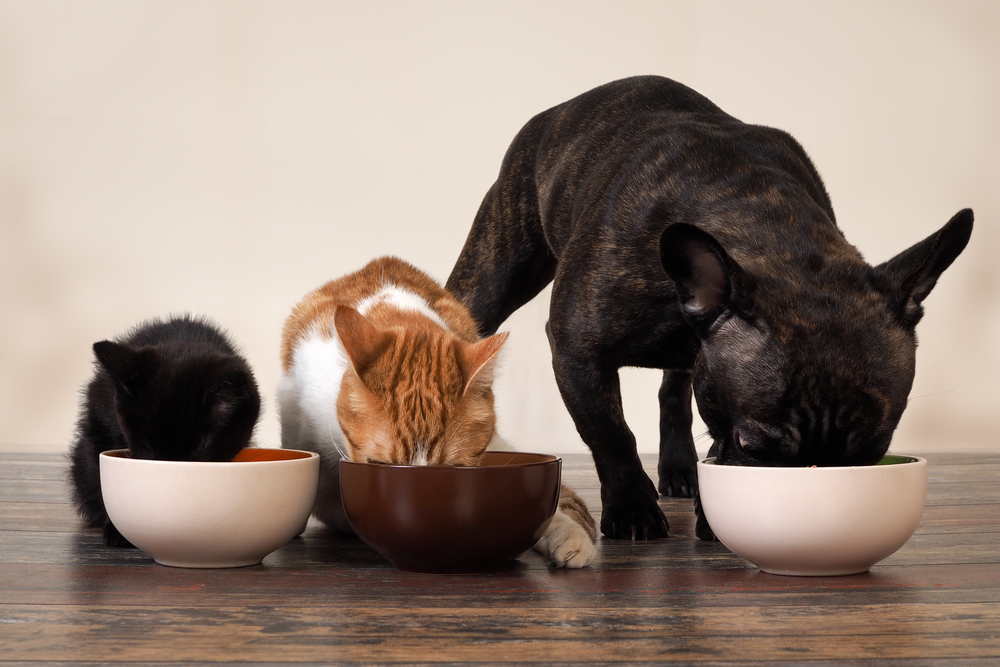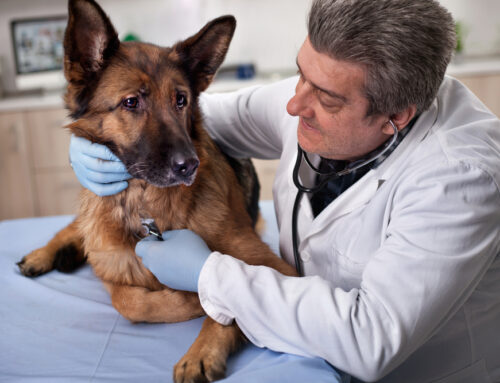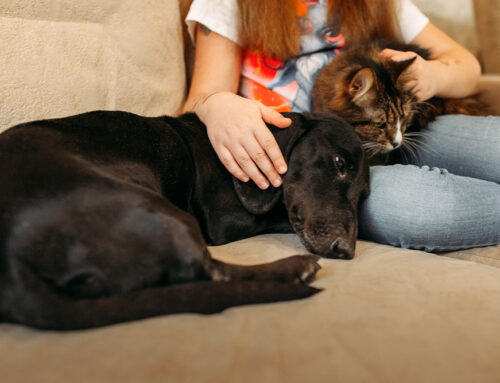In addition to regular preventive care, such as vaccinations, parasite prevention, dental cleanings, and screening tests, one of the best ways to keep your pet healthy is to feed them a balanced and nutritious diet. Proper nutrition provides the foundation for your pet’s health and wellness, and feeding inappropriate, poor-quality, or insufficient food can predispose them to a myriad of health issues.
To help give your pet the building blocks they need for a strong immune system and overall vitality, Guam Pet Hospital’s Dr. Bob shares key nutrition tips to help your furry pal thrive. Learn about the perils of underfeeding and poor-quality diets, while discovering how to choose the best food for your four-legged friend.
The dangers of inadequate nutrition for pets
Underfeeding and providing your pet with a poor-quality diet can have far-reaching consequences, impacting their physical health, mental wellbeing, and overall quality of life. If your pet’s nutrition is inadequate, they can experience one or more of the following:
- Nutritional deficiencies — Underfeeding and a poor-quality diet lead to nutritional deficiencies, essentially denying your pet the nutrients their body requires for optimal function. Proteins, vitamins, and minerals are not just buzzwords on pet food labels; they are a healthy life’s foundation. Deficiencies in these vital elements can result in a weakened immune system, lackluster coat, and a general overall health decline.
- Weight management issues — An inadequate diet can lead to weight-related problems on both ends of the spectrum. Underfed pets may experience weight loss and muscle wasting, leading to weakness and lethargy. Conversely, a poor-quality diet, laden with fillers, contributes to obesity, a condition linked to joint problems, diabetes, and a shortened life span.
- Digestive problems — Poor nutrition manifests in the digestive system, causing a cascade of issues. Low-quality ingredients and imbalanced diets can result in chronic diarrhea, vomiting, or constipation. These issues not only lead to discomfort but can also signal underlying health problems that, if left unaddressed, may escalate.
- Impaired development in young pets — A puppy or kitten is in a critical growth and development stage. Underfeeding during this phase can stunt their physical and cognitive development, affecting bone structure, organ health, and overall vitality. A diet lacking essential nutrients can have lifelong repercussions, diminishing a pet’s potential for a robust and active life.
- Dental health complications — Nutrition plays a pivotal role in maintaining pets’ dental health. Poor-quality diets can contribute to tartar buildup and gum disease, affecting your pet’s ability to eat comfortably. Dental disease can also lead to systemic health issues.
- Behavioral changes — Nutritional deficiencies can influence a pet’s behavior. Underfed or inadequately nourished cats and dogs may exhibit irritability, lethargy, or anxiety. They may also become protective of resources, lashing out at any person or pet who ventures too close to their food or treats.
How to choose the best diet for your pet

With the overwhelming array of available pet food options, understanding how to decipher pet food labels is key to ensuring your furry companion receives the nutrition they need. When determining which diet suits your pet’s needs, follow these tips:
- Read the ingredient list — Look for a pet food that includes a high-quality animal protein source as its primary ingredient. Whether your pet prefers chicken, beef, fish, or another protein source, a substantial and recognizable protein should dominate the ingredient list. Also, check the ingredient list for artificial substances. Opt for pet foods that are free from artificial colors, flavors, and preservatives. These additives can be harsh on your pet’s digestive system and may contribute to long-term health issues.
- Factor in your pet’s age and size — Your pet’s life stage and size determine their nutritional profile. Puppies and kittens, for instance, need food that supports growth, while senior pets may benefit from formulas tailored to joint and cognitive health.
- Consider special dietary needs — Some pets may have specific dietary requirements because of allergies, sensitivities, or health conditions. They may benefit most from hypoallergenic or prescription diets.
- Choose quality over quantity — While budget considerations are essential, prioritizing the ingredients’ quality over cost can contribute to long-term savings in veterinary bills. Investing in premium pet food with high-quality ingredients can potentially prevent your pet from experiencing health issues down the road.
- Observe your pet’s behavior and health — Pay attention to your pet’s coat condition, energy level, and overall health. If your pet exhibits any behavior or health change, their diet may need adjusting.
Ensuring your cat or dog receives proper nutrition is one of responsible pet ownership’s key components. By understanding the dangers of underfeeding and poor-quality diets and following these tips for selecting the right food, you contribute to your pet’s health, happiness, and longevity. For help choosing an appropriate diet to nourish your pet, contact our Guam Pet Hospital team.








Leave A Comment